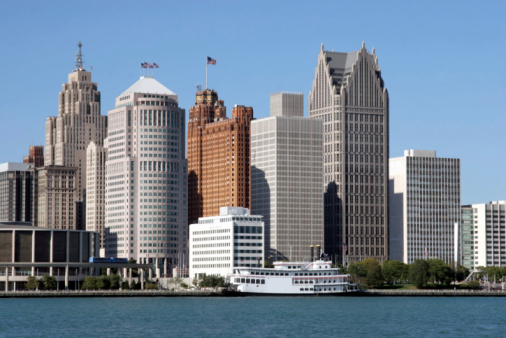Cars and Drivers
Car Companies Have Nothing to Do with Detroit Downfall
Published:
Last Updated:
General Motors Co. (NYSE: GM) CEO Dan Akerson has not been the company’s leader long enough to speak with any authority about the history of the auto industry. Already considered naïve in many quarters for his belief that GM’s troubled Europe unit can be resurrected, he confirmed the concerns of those who worry about his intellectual firepower when he told USA Today that the GM and Chrysler bankruptcies were major triggers of the fall of Detroit to the point that the city filed for Chapter 9. The problems predate the effects of the Great Recession by decades.
Akerson said:
It’s simply a matter of macro-economics. The (auto) industry generally wasn’t doing well. Many jobs were lost as the result of the restructuring, including our own, and the tax base in large measure evaporated.
Detroit’s math does not work that way. The large damage done to the industry because of the 1970s oil embargo and deep recession that accompanied it prove only that the city and its unions did not have the sense to match municipal expenses to tax revenues when the problem first emerged, and as time went by into the 1980s and 1990s.
There is always a temptation for politicians to blame trouble on predecessors. If so, the light of that blame can be cast well back toward the 1970s. GM had a 50% share of the U.S. market the decade before. A combination of poorly built cars and Japanese competition already had started to take a chunk out of GM’s prospects. Demands by the UAW for higher and higher compensation magnified the problem. The 1970s car industry implosion only compounded those troubles.
It is notable that Chrysler CEO Sergio Marchionne, an Italian, and Ford Motor Co. (NYSE: G) CEO Alan Mulally, a former aircraft manufacturing executive, have not said anything about the fall of Detroit. They know better than to speak about something where their opinions are not valuable.
Akerson’s comments are based on a view that looks back less than a decade. That is not nearly far enough.
The thought of burdening your family with a financial disaster is most Americans’ nightmare. However, recent studies show that over 100 million Americans still don’t have proper life insurance in the event they pass away.
Life insurance can bring peace of mind – ensuring your loved ones are safeguarded against unforeseen expenses and debts. With premiums often lower than expected and a variety of plans tailored to different life stages and health conditions, securing a policy is more accessible than ever.
A quick, no-obligation quote can provide valuable insight into what’s available and what might best suit your family’s needs. Life insurance is a simple step you can take today to help secure peace of mind for your loved ones tomorrow.
Click here to learn how to get a quote in just a few minutes.
Thank you for reading! Have some feedback for us?
Contact the 24/7 Wall St. editorial team.